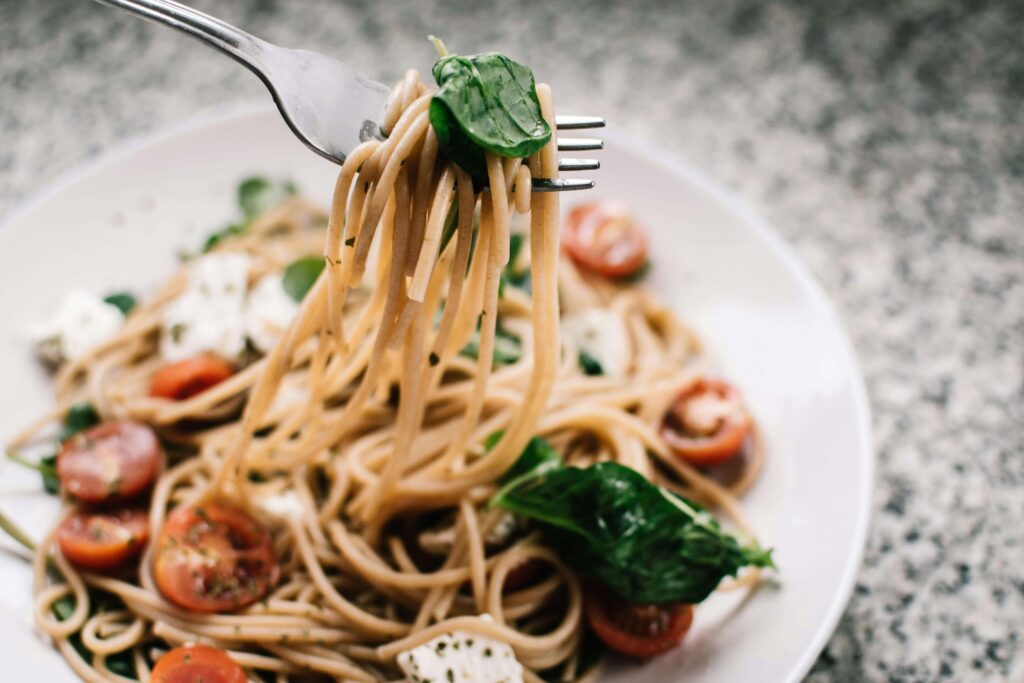Quick Tips to Balance Hunger Hormones and Lose Weight Fast
Welcome to a journey of balancing your hunger hormones for effective weight loss! If you’re looking to shed those extra pounds swiftly yet sustainably, understanding your body’s hunger hormones is key. In this blog post, we’ll delve into how these hormones affect your appetite and weight, and explore the types of foods that can help you feel fuller for longer. Let’s embark on this empowering path together, focusing on positive lifestyle changes rather than restrictive dieting. Ready to learn how to lose weight while nourishing your body and soul? Let’s get started!
Understanding Hunger Hormones and Their Roles in the Body
Our bodies are fascinating, intricate systems, and hunger hormones play a crucial role in regulating our appetite and metabolism. The primary hormones to know are leptin and ghrelin. Leptin is often higher in individuals with a higher body mass index, which reflects its role in signaling satiety or fullness. This hormone essentially tells your brain, “I’m full.” On the other hand, ghrelin, often dubbed the “hunger hormone,” works quite differently. Ghrelin acts by promoting feelings of hunger and anticipation of food. When these hormones are out of balance, it can lead to overeating and weight gain. However, with the right knowledge, you can help regulate them to support your weight loss goals.
How Different Types of Foods Impact Satiety
The food choices we make can greatly influence our feelings of fullness and satisfaction. Protein, for example, is a powerhouse when it comes to keeping you satiated. Foods like chicken, fish, and legumes are excellent sources that help you feel full longer and support muscle growth. Healthy fats, such as those found in avocados, nuts, and seeds, slow digestion and help you stay satisfied between meals. Carbohydrates are crucial for energy, but opting for whole grains over refined options will provide lasting energy and help manage hunger. Fiber-rich foods like fruits, vegetables, and whole grains not only contribute to a sense of fullness but also aid in digestion. By understanding how these different types of foods affect your satiety, you can make more informed choices that help you manage your hunger effectively and support your weight loss journey.

Examples of Satiating Foods for Effective Weight Loss
When it comes to choosing foods that help you feel full and satisfied, understanding the role of protein, healthy fats, carbohydrates, and fiber is crucial. Let’s explore some specific examples that can easily fit into your daily routine.
For protein, Greek yogurt, eggs, and tofu are excellent choices. Greek yogurt is not only rich in protein but also convenient for a quick breakfast or snack. Eggs offer versatility—boil them for an on-the-go snack or scramble them for a hearty breakfast. Tofu is a fantastic plant-based protein that can be stir-fried, baked, or added to soups.
Healthy fats are essential for satiety and overall health. Consider adding olive oil, chia seeds, and fatty fish like salmon to your meals. Olive oil is perfect for dressing salads or drizzling over vegetables. Chia seeds can be mixed into yogurt or smoothies for an extra boost of fiber and omega-3 fatty acids. Fatty fish such as salmon are not only delicious but also rich in healthy fats and protein.
When it comes to carbohydrates, opt for whole grains such as quinoa, brown rice, and whole-wheat pasta. Quinoa is a versatile grain that can be used in salads, soups, or as a side dish. Brown rice provides a nutty flavor and pairs well with many proteins. Whole-wheat pasta is a more nutritious option compared to its refined counterparts and can be used in a variety of dishes.
Fibrous vegetables are key to feeling full and promoting digestion. Incorporate broccoli, carrots, and leafy greens into your meals. Broccoli can be steamed, roasted, or added to casseroles. Carrots are great raw, steamed, or roasted. Leafy greens like spinach and kale can be used in salads, smoothies, or as a side dish.
Balanced Meals for Busy People
Creating balanced meals doesn’t have to be a daunting task, even for those with packed schedules. For lunch, consider grilling a chicken breast and pairing it with a serving of quinoa and a side of mixed greens topped with avocado slices. This meal offers a delightful mix of protein, healthy fats, carbs, and fiber, ensuring you stay full and energized.
If you need something even quicker, try a whole-grain wrap filled with turkey, fresh spinach, hummus, and sliced bell peppers. This combination is not only nutritious but also easy to prepare and perfect for a quick lunch at your desk.
For dinner, think about a stir-fry made with tofu, broccoli, carrots, and brown rice. Simply toss the vegetables and tofu in a pan with a bit of olive oil and your favorite spices for a flavorful, balanced meal.
Breakfast can be just as simple and satisfying. A bowl of Greek yogurt topped with chia seeds, and berries makes for a protein-rich start to your day. Alternatively, scramble some eggs with spinach and serve with a slice of whole-grain toast for a quick, nutritious option.
Snacks can also be balanced and convenient. Keep a handful of almonds or an apple with some peanut butter on hand for those mid-afternoon hunger pangs.
These meal ideas are designed to fit seamlessly into your busy lifestyle while helping you manage hunger and support your weight loss goals.

How to Implement These Tips into Your Busy Lifestyle
Balancing your hunger hormones for effective weight loss can fit seamlessly into your busy life with a bit of strategic planning. Begin by designating a time each week to meal prep. Cooking in bulk allows you to have healthy, balanced meals ready when you need them most. For instance, you could grill a few chicken breasts, batch-cook quinoa, or steam a variety of vegetables, then store them in individual portions for easy grab-and-go options.
Utilize your freezer as a resource. Prepare soups, stews, or casseroles in large quantities and freeze them in meal-sized portions. This way, you can simply reheat a nutritious meal even on your busiest days.
Incorporate snacks that are both healthy and portable. Keep a stash of nuts, yogurt, or pre-cut vegetables handy in your office or car. This helps you avoid the temptation of less healthy, convenience foods when hunger strikes.
Invest in a good quality lunch box or meal prep containers. Having the right tools makes it easier to bring balanced meals from home rather than opting for fast food.
Finally, consider integrating these changes gradually. Start with just one or two new habits and build from there. This approach will make the transition smoother and more sustainable, fitting naturally into your demanding lifestyle.
For a simple and effective way to plan balanced meals and snacks get our meal planning bundle that provides you with a plug and place list of healthy food and how to pair them to get meals that leave you feeling healthy and satisfied.

The Importance of Personalized Plans and Accountability
Navigating your weight loss journey can be challenging, but having a personalized plan and accountability can make all the difference. A Registered Dietitian brings a wealth of expertise to tailor a nutrition plan that fits your unique needs, lifestyle, and preferences. This personalized approach ensures that the plan is realistic, achievable, and enjoyable for you, removing the guesswork and frustration that often accompany generic diets.
Accountability is a powerful motivator. Regular check-ins with a Registered Dietitian can help keep you on track, providing you with the support and encouragement you need. They can help you identify any barriers you may face and offer practical solutions to overcome them. This professional guidance can be especially beneficial for people with busy lifestyles who may struggle to find the time or energy to focus on their health amidst demanding schedules.
Moreover, a personalized plan considers your long-term health and well-being, not just immediate weight loss. It encourages the development of sustainable habits that can lead to lasting success. Whether it’s adjusting your meal plan to better suit your tastes or finding creative ways to incorporate healthy choices into your daily routine, a Registered Dietitian can help you make meaningful changes that fit seamlessly into your life. This tailored support fosters a positive relationship with food, emphasizing nourishment and balance over restriction. Click here to check out the details of our personalized nutrition coaching.
Building Lasting Habits for Long-Term Success
Building lasting habits is essential for achieving long-term weight loss and hormone balance. Start by setting realistic, manageable goals that fit your busy lifestyle. Small changes, like incorporating more fiber-rich vegetables into your meals or swapping refined grains for whole grains, can make a significant difference over time. Consistency is key—integrate these changes gradually and allow yourself time to adapt. It’s important to be patient with yourself and recognize that building new habits is a process.
Seek support from a Registered Dietitian who can provide personalized advice and accountability. Their expertise can help you navigate challenges and stay motivated, making it easier to stick to your plan. Remember to celebrate your progress, no matter how small, as each step brings you closer to your goals. Emphasize self-care and well-being, focusing on nourishing your body rather than restricting it.
I am Leslie Stevens, a Registered Dietitian with a Masters Degree in Nutritional Sciences
who specializes in fat loss and restoring metabolic health for those who live busy lifestyle and I would love to support you in this process. Feel free to book a no obligation info call to learn more about how I can support you in your wellness journey.
Developing a positive relationship with food is crucial for sustaining long-term success. By fostering a mindset of balance and self-compassion, you’ll create healthy habits that last a lifetime. Stay committed to your journey, and remember that each small change contributes to your overall health and happiness.
CATEGORY
10/15/2024

Comments Off on